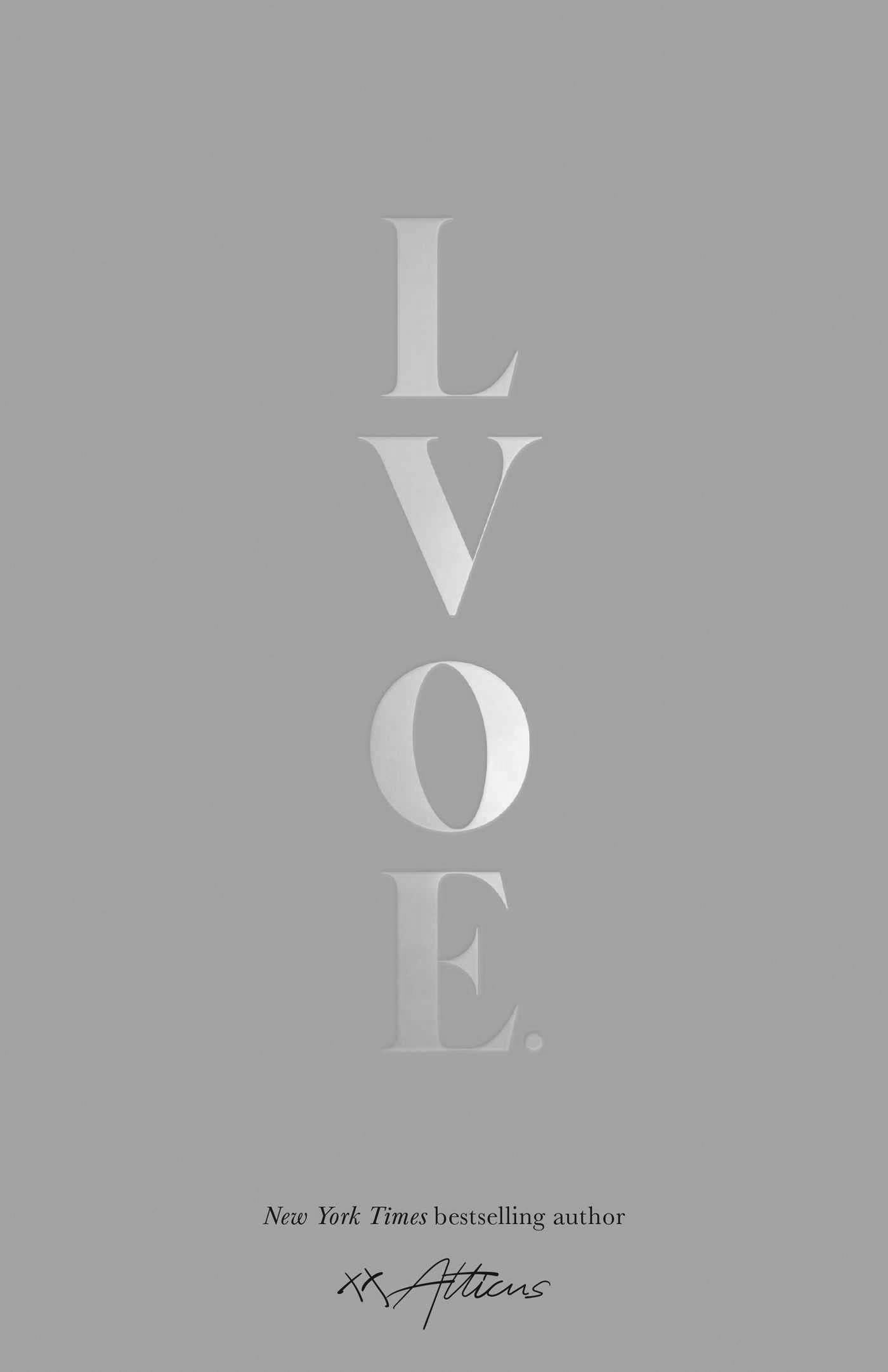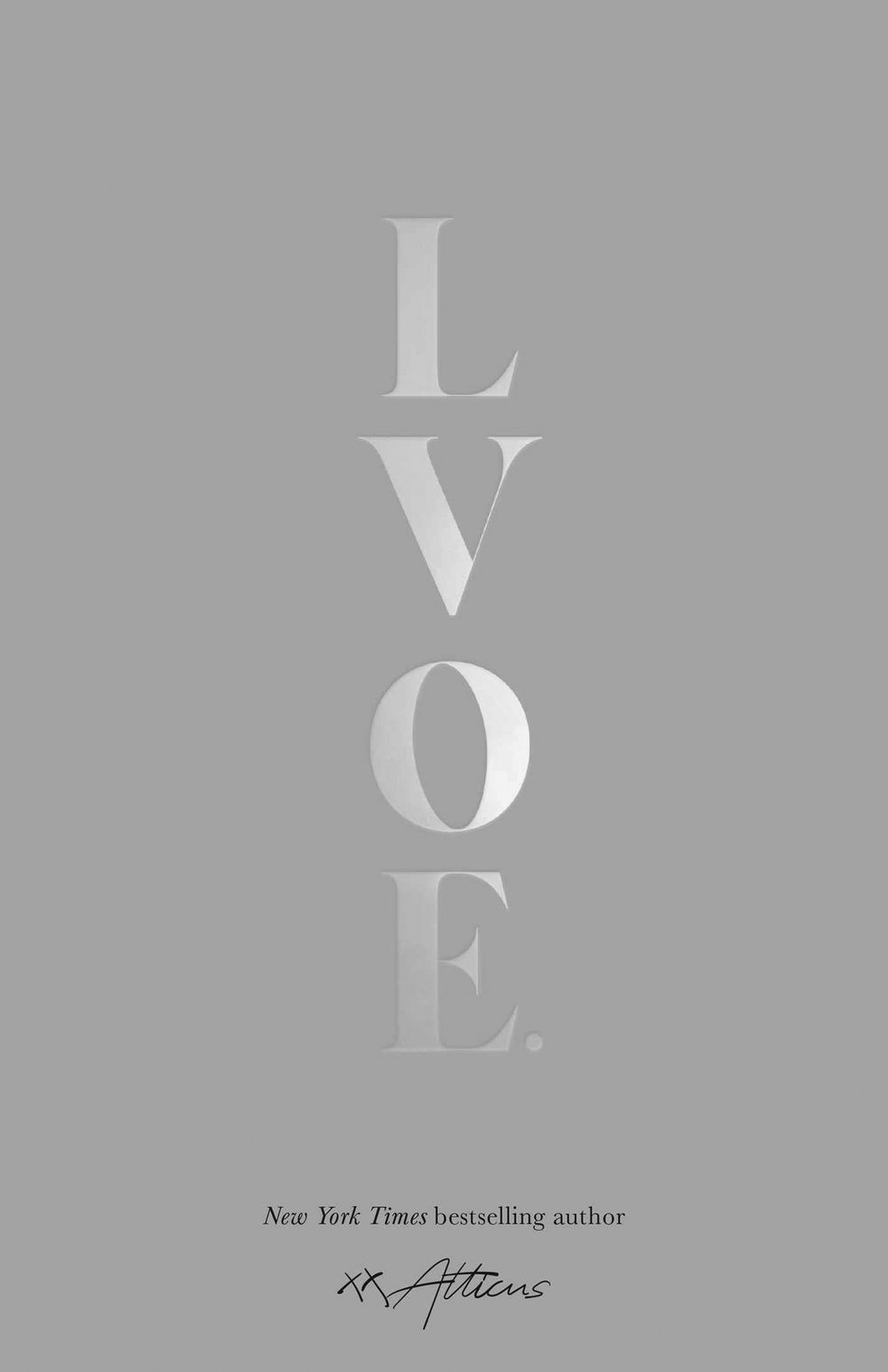Musings of a Heart Turned Inside Out
by Blair E. Vandehey
Centered around his adoration for life’s and love’s imperfections, Atticus’ fourth collection of poetry, LVOE., challenges the affordances of romantic poetry and reintroduces what poetry is (and what it can be) to readers of all kinds.
The amazing intimacy of LVOE. is what immediately captivated me about the collection, both in the words and how they were written. About half of the poems are in Atticus’ own handwriting, giving the already personal work a further sense of connectedness to their author. His pen quickly proves to be an extension of his person; when he bares himself to the reader in handwriting, we are handed his emotions far more rawly than if he had typed them. A degree of separation between the reader and his heart is removed, allowing LVOE.’s intimacy to extend far beyond the pieces themselves.
Self-reflexivity is a hallmark of Atticus’ writing, and nothing proves this more than how he wields contradiction. Throughout the collection, he is constantly challenging what he had established in earlier poems; with a single turn of a page, a relationship that seems to allow him all the time in the world passes by and the established timelessness of love is refuted. Even within a single poem one may find a rebuttal, such as when he declares that although he sees love as a mortal concept that may die out with humanity, he too trusts that the Universe may remember it and thus allow it eternity, if only in memory. At first glance, his use of contradiction may make the author appear unsure, but the transience of LVOE. is necessary to understand the human experience, one of the topics Atticus explores in his writing. As he grows and changes, so do his insights within the pages, reflecting human fluidity. There is nothing static about us; our perspectives are prone to evolve as we experience life. Atticus’ contradictions masterfully thrusts that dynamic nuance of humanity into light, proving the strategy imperative to the authentic experience of LVOE.
Atticus’ adventurous nature as a writer gives birth to his most daring contradiction of LVOE. – poetry is powerfully powerless. As a reader, I was shocked he claimed this; even poets who began writing from hardship often acknowledge the voice their craft allows them. How could an artist claim such a discreditation against their own art? Rather than an explicit explanation, Atticus places his trust into the reader to realize throughout the rest of LVOE. what he means. The reader discovers that he declares poetry powerless because it is the most powerful way he can express his reverence for the woman he holds dear, life, and, of course, love. Yet, even the all-powerful artform cannot irrigate the overflowing adoration he has for his muses. The reader comes to find his initial assertion about poetry not only makes sense but places the unbounded emotion he writes with into clarity – it is limitless even within a limited medium, a beautiful contradiction in itself. Although he never explicitly answers the reader this, the words he leaves unsaid speak volumes.
The medium of poetry is surrounded by stigma. Some believe it is demanding, unrelatable, old-fashioned – an untouchable artform for the contemporary reader. Atticus’ unification of modernity and tradition, however, breaks these barriers and makes the collection incredibly approachable. The majority of LVOE.’s works are Instapoems; they’re short and poignant without sacrificing their lyrical nature. In an increasingly impatient world, adaptation to a more accessible style is crucial. Atticus recognized the need for this and created a collection centered on single-page Instapoetry. This is not to say that he does not include some longer works as well; LVOE.’s final poem “LOVE HER, BUT LEAVE HER WILD” is a three-page piece just as powerful as the shorter ones. While the contemporary Instapoems are the most prevalent, Atticus blends them with traditionally longer pieces to welcome readers of all literary backgrounds to LVOE.
In addition, his use of modern nuances offers a refreshing perspective on the medium for returning audiences as well as a gateway for those new to poetry. Lyrical musings on life and love are coupled with declarations that life is the art of sending memes to loved ones until the day we die and almost humorous moments such as his ill preparation for the ultimate declaration of love – that his muse prefers him to chocolate. Not only does this tactic cater to the connoisseur of romantic poetry but also to the everyday reader – a seemingly simple audience, but one neglected by poets far too often.
LVOE., in all its simplistic complexities, refuses to pigeonhole romantic poetry into what it has always been. Challenging the medium, Atticus invites a vast audience to fall in love with imperfection just as he has.
Blair E. Vandehey is an Appleton-based writer, daydreamer, and lover of all things pop culture. She is currently working towards a degree in Creative Writing at Lawrence University.





